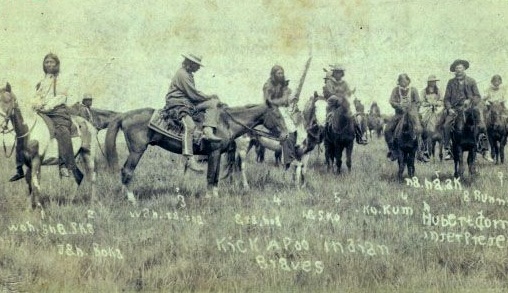
As American settlers began moving into Texas-a Spanish colony-in the early nineteenth century, they brought with them an anti-Indian arrogance and attitude than came to define both the Republic of Texas and the State of Texas. They tended to recognize no Indian rights in Texas, and during the Civil War period this anti-Indian attitude was enfolded into racism. Incidents at the end of the Civil War ignited a war with the Kickapoo Indians that would last for decades and would include illegal military expeditions into Mexico.
Civil War:
As soon as the Civil War broke out, the Confederacy sent treaty delegations among the Indian nations in Indian Territory (present-day Oklahoma) to negotiate treaties of friendship and alliance. Many of the Indian nations had ties to the South, including the ownership of African slaves, and were friendly to the Confederate cause. In addition, many of the tribes held some animosity against the United States as a result of their removal to Indian Territory.
The Kickapoo were not a southern tribe, but one whose homeland was in the Great Lakes area. In their dealings with the United States government they had found the Americans to be less than honorable and therefore had little loyalty to the United States. On the other hand, signing a treaty with the Confederates would require them to declare their friendship for Texas and to stop their raids on Texas ranches and settlements. Their dislike of Texans was greater than their dislike of Americans and so they hoped that a path of neutrality would keep them out of the war. They left Indian Territory and fled north to Union-held Kansas with other pro-Union Indians. In Kansas they did not find peace, but instead there were conflicts with the Osage and the seemingly constant solicitations from Union agents to join their cause.
In 1862, about 600 Kickapoo under the leadership of Machemanet left Kansas with the goal of settling in west Texas or northern Mexico. They wished to escape from conflicts with the Osage and to avoid the Civil War. At this time, there were already Kickapoo villages in Coahuila, Mexico.
They traveled without incident to southwest Texas. While camped on the Little Concho River, the Kickapoo were spotted by a mounted Confederate battalion. Noting the large Kickapoo horse herd, the Confederates attacked. Kickapoo warriors quickly recovered the horses and drove off the Confederates. They hurriedly packed up their camp and crossed into Mexico where they were welcomed by Mexican officials. In return for a pledge from them to drive out the Comanche and Apache raiders and to protect the northern frontiers of Mexico, the Mexican government made a grant of land to Machemanet’s people.
The following year, couriers from Machemanet’s Mexican Kickapoo brought an invitation from the Mexican government to the Southern Kickapoo to move to Mexico. Pecan (the younger) and Papequah held a number of councils to discuss the matter.
The Spark:
In 1865, the Southern Kickapoo bands under the leadership of Pecan (the younger), Nokowat, and Papequah were migrating to their new home in northern Mexico. They had been following a carefully selected course to stay away from any settlements. Upon reaching the South Concho River, they decided to camp for several days to give the horses an opportunity to rest. It was cold and windy, so no scouts were posted.
A scouting party of 20 Confederate cavalry, however, had picked up the Kickapoo trail. At one point they opened a fresh Kickapoo grave and stole the grave goods. They were reinforced with regular Confederate troops bringing their strength up to about 400. With this force they struck the unsuspecting camp.
While the attack took the Kickapoo warriors by surprise, they quickly recovered. Their deadly fire killed 30 of the attacking Confederates, including four of their officers. After a half-hour of intense fighting, the Texans panicked and scattered in retreat. The Kickapoo, who had lost 16 warriors in the fight, quickly packed up camp, leaving large quantities of supplies behind, and fled to Mexico.
Historians would later call this the Battle of Dove Creek, and in the annals of Texas history it was recorded as the most disastrous defeat ever suffered by the Texans in their long history of Indian wars. Their shame was such that an official investigation was held to inquire into the conduct of the military leaders. The inquiry found that there were no indications that the Kickapoo were anything but friendly. In one incident before the attack, an unarmed Indian had come into the camp with two children. He told Captain Fossett that they were friendly Indians. Fossett replied that there were no friendly Indians in Texas and ordered the man and the children to be shot. The men, however, opposed the order to kill the children and they subsequently escaped during the army’s retreat.
From the Kickapoo perspective, the Battle of Dove Creek was a declaration of war by the Texans. Since Texas had declared war against them, the Kickapoo were able to rationalize their raids along the Rio Grande until the 1880s.
The War:
In 1865, while the Americans in the Martin Settlement of Indan Territory were celebrating the Fourth of July with a dance, Mexican Kickapoo warriors raided their horse corral. A twelve-man posse under the leadership of the well-known Indian fighter Levi English set out in pursuit. The Americans had estimated that there were only 18 Kickapoo warriors. It was soon apparent, however, that the posse had been led into a trap in which three were killed and another six wounded.
In 1870, Mexican Kickapoo raiders from Coahuila captured about 40 horses from a ranch near Fort Clark. Two ranchers trailed the raiders back into Mexico, and, while the warriors were sleeping, they recaptured the horses. However, the ranchers were caught by the Mexican army and arrested on suspicion of stealing horses. When the Kickapoo warriors came to Santa Rosa to claim the horses, the Texans filed a suit against the Indians in the local court. Jesus Galan, acting as the attorney for the Kickapoo, argued that since the Kickapoo were at war with the Texans, they had a right to steal north of the border. In the end, 17 horses were awarded to the Texans.
In response to raids by the Mexican Kickapoo, the Texas state legislature in 1870 authorized the formation of 20 companies of Texas Rangers. However, authorizing the companies and paying for them are two different issues. Inadequate funding nullified the force of this measure: only about half of the companies were ever formed, and these were disbanded the following year.
In an attempt to capture Mexican Kickapoo and force them onto a reservation in Oklahoma, the United States Army, in violation of federal laws and in violation of international treaties, invaded Mexico in 1870. The invasion was in response to complaints about Kickapoo raids into Texas. The army succeeded in capturing some Kickapoo and locating them on an Oklahoma reservation.
In 1871, General William Tecumseh Sherman, frustrated at the army’s inability to cross into Mexico to fight against the Kickapoo, asked the State Department to apply to the Mexican government for permission for American troops to invade Mexican soil when they were in hot pursuit of Kickapoo war parties. The Mexican government quickly denied the request.
While the army sought a military solution to the Kickapoo-Texas war, the Quakers were seeking a peaceful solution. In 1871 Quaker Indian agent Jonathan B. Miles was assigned the task of making contact with the Mexican Kickapoo in Coahuila and inviting them to return to the United States. He left Kansas for Mexico with several Kickapoo leaders, including Nokowhat, Parthe, and Keoquark, and an interpreter.
In Mexico, he made contact with Cheeno and his band. He quickly found that they had little interest in the promises of presents, annuities, and land if they would return to the United States. He found that the Mexican government had promised them $10,000 to be used for agricultural development in exchange for their continued border defense against other Indians.
Wapakah, a band leader who was favorable to returning to the United States, told Miles that the American proposal was lost. According to Wapakah, those favorable to returning to the United States were at that very moment being won over by Mexican presents and promises. He advised Miles to abandon his mission.
In 1872, under orders from General Phil Sheridan, the U.S. Cavalry followed Kickapoo and Lipan Apache raiders into Mexico. More than 160 miles south of the border, the Americans killed 19 warriors, captured 40 women and children, and burned three villages. Mexican denial of the hot pursuit request and the concept of sovereignty were simply ignored.
The Congressional commission investing the Kickapoo war on Texas concluded in 1873 that the war could be settled by the removal of the Kickapoo from Mexico and their resettlement on a reservation in the United States.
In 1873, General Philip Henry Sheridan, the commander of the Department of Missouri, and Secretary of War William Belknap met at Fort Clark for a secret meeting with Colonel Ranald S. Mackenzie. General Sheridan told Mackenzie:
“I want you to be bold, enterprising, and … when you begin, to let it be a campaign of annihilation, obliteration and complete destruction.”
When Mackenzie asked about authority, he was simply told that he had the backing of President Grant.
Consequently, U.S. troops from Texas invaded Mexico. The troops found the Kickapoo villages undefended: the warriors had left the day before. The Kickapoo were caught completely by surprise. Those who had remained in the villages-women, children, and old men-were panic-stricken, but they fought like demons when the terror of the surprise assault passed. Methodically, the troops hunted out the hiding Indians, killed those who resisted, and took as prisoners the few who surrendered.
Some 40 Kickapoo women and children were taken prisoner, tied to horses (sometimes as many as three per horse), and rushed back to Texas. The Americans feared that the Kickapoo men would soon return, and desired a fast retreat. The prisoners were then sent to Fort Gibson in Indian Territory where they were held as prisoners of war.
The Mexican government issued a strong protest. The attack was not a spontaneous excursion into Mexican territory, but one which had been planned over the course of several months and had involved special training for the troops. As usual, the United States ignored the protest.
In Oklahoma, the army refused to turn over the Kickapoo women and children to the care of the Bureau of Indian Affairs. The army insisted on holding them as prisoners of war until the Kickapoo returned to a reservation.
In Coahuila, Mexico, American negotiators persuaded the Kickapoo to remove to Oklahoma. The army raid on their village had completely devastated them and they had to be fully outfitted for removal. In their journey north, the 317 warriors, women, and children were taken on a long route to avoid contact with communities in Texas.
When they arrived in Oklahoma they were initially assigned to a reservation next to the Osage and the Kaw, traditional enemies of the Kickapoo. The chiefs protested because they had been told that they would be able to select their own reservation.
In 1874, the Kickapoo in Oklahoma were placed under the jurisdiction of the Sac and Fox Agency. The establishment of the new Kickapoo reservation had an impact on the surrounding tribes. Indian agents soon found that Sac, Fox, and Shawnee families joined the Kickapoo religious rites; they became disdainful of the missionaries laboring among them; they rejected Christian teachings; and they neglected their fields and livestock herds to participate in the Kickapoo dances, festivals, and games. The Indian agents became distressed at the carefree Kickapoo attitude toward life. The agents resented what they considered the ‘time wasted” by the warriors and their families in native religious observances, tribal festivals, dances, and games.
In 1874, the Kickapoo Removal Commission traveled to Coahuila, Mexico to meet with the scattered bands of Mexican Kickapoo and persuade them to return to the United States. While Cheeno was seen as the principal chief, the Commission met with Mosquito in Cheeno’s absence. The Commission fed the assembled Kickapoo, gave them blankets, and told them about the pleasant life on the Oklahoma reservation.
The following year, a band of 115 Kickapoo from Mexico under the leadership of Mosquito removed to the new reservation in Oklahoma. The U.S. government provided each family with supplies and food for their journey.
While the major military campaigns against the Kickapoo ended at this time, the war still continued for another decade, though with less intensity. Kickapoo warriors living in Mexico still considered Texas to be at war with them, thus providing them with an excuse to raid north of the border. From the American and Texan viewpoint, however, there was no longer a war, but simply criminal bands to be dealt with by local law enforcement.
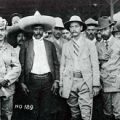
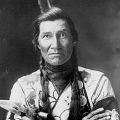
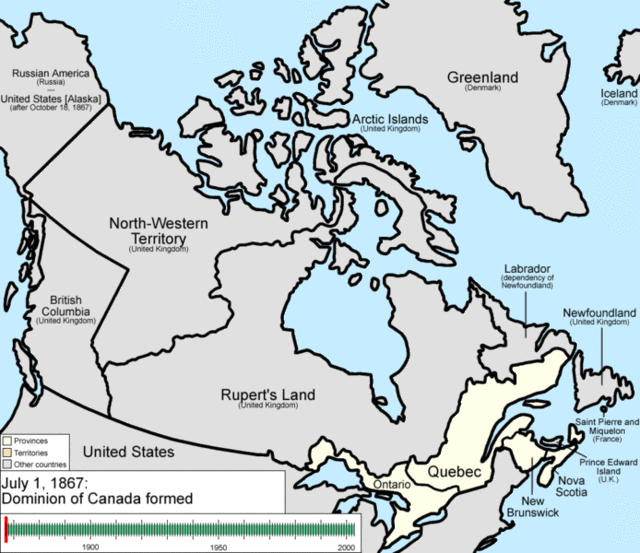
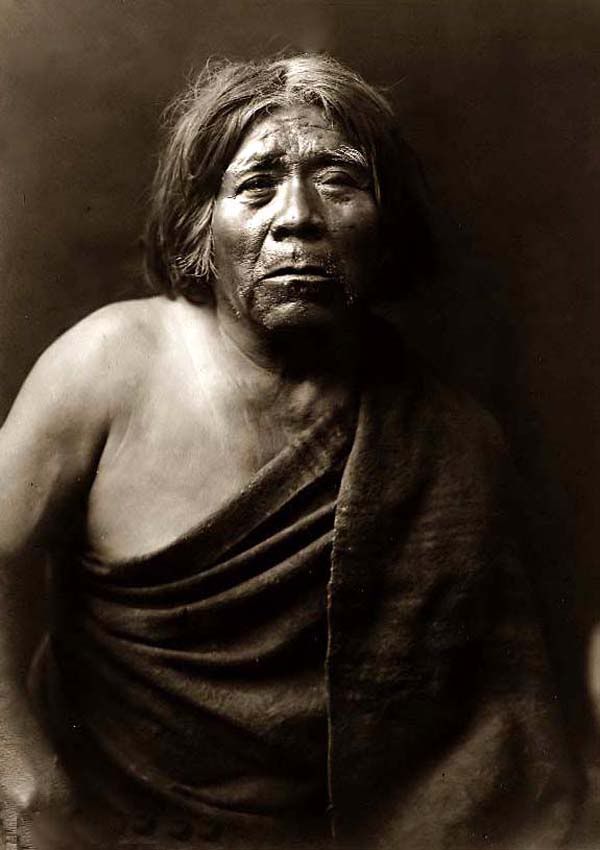
Leave a Reply